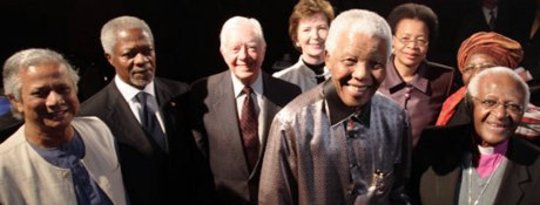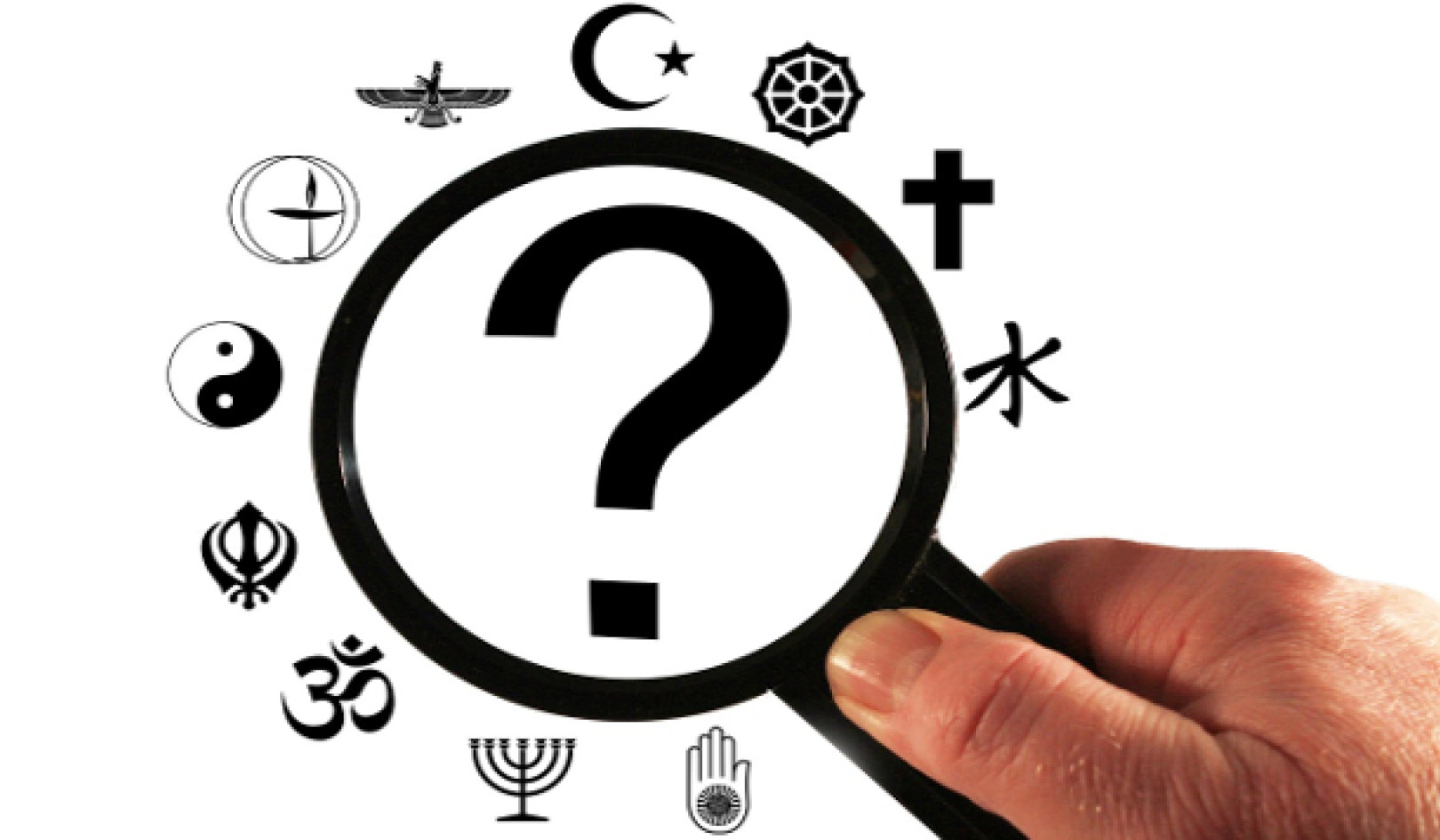
Once when I was at a lecture, a woman approached me during the break and said, "One of our problems is we don't cultivate wise elders in this culture. When people are surrounded all their lives by the belief that old age is a time of misery, defeat, irrelevance and meaninglessness, they don't become wise as they age, they become anxious, fearful, and embittered."
She was absolutely right! We sometimes lose sight of the fact that our experience of life is a manifestation of the cumulative effects of culturally generated self-fulfilling prophecies. We hang on to youth because so many people have told us that youth is the best part of our life!
We shun aging because our lives feel so unfulfilled. We approach middle age in a panic, fearful that we have already missed the best years of our lives. We don't want to get old without ever having experienced the happiness, fulfillment, passion, and connection we expected, that were all supposed to have been a part of our youth.
Dr. Robert Kastenbaum, the great gerontologist, clearly understood many of the problems inherent in our culture's delusions about how to achieve happiness and fulfillment. In a 1978 article in the Gerontologist, Kastenbaum said that the "limitations and distortions of our core vision of what it means to be a person become starkly evident in old age... if to be an old person is to suffer abandonment, disappointment, and humiliation. This is not a ‘geriatric problem.' It is the disproof of our whole shaky-pudding technology, science and all. If our old people are empty, our vision of life is empty."
I don't know about you, but I can honestly say that my youth, especially my teenage years, was the worst time of my life. I didn't really even begin to be happy until I was in my late twenties.
I can also honestly say that throughout my life, some of the most interesting and delightful people I have ever known -- many of whom I have regarded as my most treasured companions, friends, and teachers -- have been people in their seventies, eighties, and nineties. They are the rare ones, the ones who haven't been seduced by our culture into thinking that they are useless or problematical simply because they are "old."
Happiest Time of Life... After Sixty
Despite our upside-down perceptions and the profusion of products and techniques designed to reverse or erase the aging process, the latest psychological and sociological studies show rather conclusively that the happiest time of life -- even in our culture -- occurs during the years after we reach the age of sixty. The same studies show that the unhappiest years are those from twenty to twenty-nine, exactly the years we most want to cling to.
Isn't it interesting that in recent decades we have come to understand that the cultures that haven't been affected by technological progress often possess a far deeper wisdom about human happiness and a far greater ability to live a meaningful life than we -- in our modern, technology-obsessed, self-absorbed world -- have?
Utilizing Life for Spiritual Awakening
We now look to yoga, meditation, Eastern philosophies, contemplative prayer, tai chi, qigong, acupuncture, Native American wisdom traditions, and a vast array of other philosophies, practices, and diets that hearken back, in some cases thousands of years, to earlier times when all the world was viewed as sacred; when the interconnection between human beings and the natural world was fully understood and appreciated; when the interconnection between human beings and the spiritual realms was fully recognized; when the interconnection between all human beings was instinctively known and honored; when health, healing, and happiness were seen to be intimately connected with one's diet, actions, and states of consciousness; and when it was understood that the primary route to happiness was to utilize one's life for spiritual awakening.
Retirement: The Most Important Time of Life
While our culture sees aging as a catastrophe and the time of retirement as a tragedy, in India it has traditionally been seen as the most important time of one's life. In India one can embrace aging because one is finally "free" to do the most important work a human being can do, the work of spiritual awakening.
When we are fully focused on God, we generally become wiser. For the younger members of the traditional Indian family, the grandparents become, literally, like gurus. They are the family's connection to the Divine, the wise ones who are there to offer advice, assistance, and insight. They are revered like great saints. Their children and grandchildren are honored to have them living in their homes so they can share in the benefits of their grandparents' evolving wisdom and enlightenment.
Grieving Spouses: Finding Meaning in Life
 These principles have come into play with many of the elders I have worked with following the death of a beloved spouse. Initially, the survivor is heartbroken, heartsick, and disoriented. Our culture has offered grieving spouses little or no context to prepare for this experience and little or no context to find meaning in life following the death of their mate. Without their partner at their side, life becomes confusing and frightening, seemingly devoid of meaning.
These principles have come into play with many of the elders I have worked with following the death of a beloved spouse. Initially, the survivor is heartbroken, heartsick, and disoriented. Our culture has offered grieving spouses little or no context to prepare for this experience and little or no context to find meaning in life following the death of their mate. Without their partner at their side, life becomes confusing and frightening, seemingly devoid of meaning.
As we work together, through various approaches, we begin to find ways for them to experience the eternal, undying love they always carry in their hearts for their physically departed spouse. We begin to explore the parts of them that might, even if only occasionally, have longed for more solitude. Now they have that solitude. We also begin to find ways for them to laugh again. In time, we begin to explore the Indian model of the senior years, how the elders in the society can become the true leaders of the society, the seers and sages.
Many of my most successful and dedicated meditation students have been widows and widowers in their sixties, seventies, and eighties who had never prepared for their new solitary lives. They had never thought of using the solitude, the inevitable physical restrictions, and the reduced social life brought on by the aging process as the most advantageous conditions for cultivating their spiritual life.
Cultivating Spiritual Life
A number of years ago I began to see an interesting parallel between our spiritual pursuits and the process of aging. When we really want to nurture our spiritual awareness, we often remove ourselves -- at least temporarily -- from the outside world. We go off to an institution -- a monastery, an ashram, a retreat center, or a meditation center. These centers are usually austere and institutional. We love the environment they create because it's so supportive of the inner work we want to do.
We want a private room so we're not distracted by the need to be social. We want quiet so that we're not distracted by sounds. We often do yoga so that we can sit in meditation for extended periods without having to move. When we sit in prayer and meditation, we generally close our eyes so we aren't distracted by visual stimuli. All this "frees" us to do our inner work.
The Aging Process and Spiritual Life
Now look at what happens to us when we get old. We often wind up living alone in an institution. We lose most of our relatives and friends, so we have fewer opportunities, and fewer obligations, to be social. Our bodies get a little problematical, so we can't move around as much. We lose our hearing and our eyesight, so we're no longer distracted by sounds and sights.
Isn't that remarkable? Just when we are at the point in our lives when we really should start preparing to go to God, nature -- naturally -- gives us the optimum ingredients for a life of prayer, meditation, contemplation, and inner growth.
But our society is so upside down, we never consider that there might be some immensely positive effects to these natural by-products of the aging process. We're far too absorbed in thinking that it's all a catastrophe... a mistake. We think that God has screwed up because our loved ones have died, our bodies are falling apart, and we're losing our physical abilities. We think that God has abandoned us, when in fact He has given us all of the conditions we need to come to know Him. We often miss that opportunity because we're so consumed with being a victim, with being depressed and outraged because we're not young anymore and things aren't like they were when we were young.
The Illusion of Youth
So we hang on to the illusion of a youth that wasn't really all that fulfilling. And we shun the period in our lives when we might achieve real happiness. The truth of the matter is, the only widely accepted lifestyle offered to our elders in this culture is to do everything they can to pretend they're still young!
We tenaciously cling to all of the things we simply can't take with us when we die rather than cultivate our inner beings in preparation for going into "the formless." We miss the opportunity to cultivate the qualities of being that we can take with us, the qualities that might make old age and dying the greatest trip of our lifetime.
Reprinted with permission of the publisher,
New World Library, Novato, CA. ©2007.
www.newworldlibrary.com or 800-972-6657 ext. 52.
This article was adapted with permission from the book:
When Prayers Aren't Answered: Opening the Heart and Quieting the Mind in Challenging Times
by John Welshons.
 In the depths of grief, some find solace in their faith, while others feel that God has deserted them. John Welshons confronts life’s most challenging experiences directly, acknowledging both the reality and inevitability of unexpected, unwanted change. Then, with insights gathered from the world’s great spiritual traditions, he shows how to use painful circumstances as fuel for enlightenment. With deep empathy, he lights a path toward the communion, peace, and joy that are possible when we open our hearts to life in its totality.
In the depths of grief, some find solace in their faith, while others feel that God has deserted them. John Welshons confronts life’s most challenging experiences directly, acknowledging both the reality and inevitability of unexpected, unwanted change. Then, with insights gathered from the world’s great spiritual traditions, he shows how to use painful circumstances as fuel for enlightenment. With deep empathy, he lights a path toward the communion, peace, and joy that are possible when we open our hearts to life in its totality.
For More Info or to Order This Book (newer paperback edition)
About the Author

John Welshons is the author of When Prayers Aren't Answered and Awakening from Grief. A much sought after speaker who offers lectures and workshops on terminal illness, grief, and other topics, he has been helping people deal with dramatic life change and loss for over 35 years. He is the founder and president of Open Heart Seminars and lives in New Jersey.
Visit his website https://onesoulonelove.com/




























